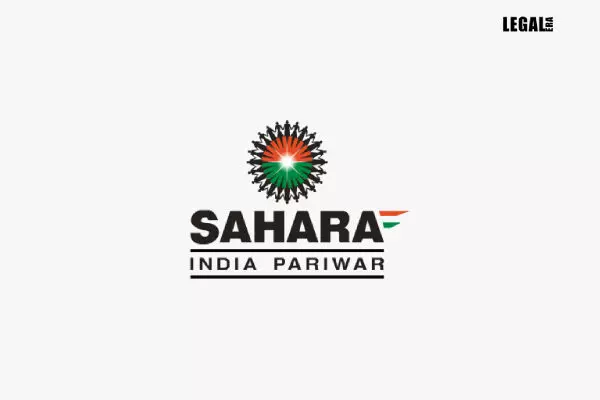- Home
- News
- Articles+
- Aerospace
- AI
- Agriculture
- Alternate Dispute Resolution
- Arbitration & Mediation
- Banking and Finance
- Bankruptcy
- Book Review
- Bribery & Corruption
- Commercial Litigation
- Competition Law
- Conference Reports
- Consumer Products
- Contract
- Corporate Governance
- Corporate Law
- Covid-19
- Cryptocurrency
- Cybersecurity
- Data Protection
- Defence
- Digital Economy
- E-commerce
- Employment Law
- Energy and Natural Resources
- Entertainment and Sports Law
- Environmental Law
- ESG
- FDI
- Food and Beverage
- Gaming
- Health Care
- IBC Diaries
- In Focus
- Inclusion & Diversity
- Insurance Law
- Intellectual Property
- International Law
- IP & Tech Era
- Know the Law
- Labour Laws
- Law & Policy and Regulation
- Litigation
- Litigation Funding
- Manufacturing
- Mergers & Acquisitions
- NFTs
- Privacy
- Private Equity
- Project Finance
- Real Estate
- Risk and Compliance
- Student Corner
- Take On Board
- Tax
- Technology Media and Telecom
- Tributes
- Viewpoint
- Zoom In
- Law Firms
- In-House
- Rankings
- E-Magazine
- Legal Era TV
- Events
- News
- Articles
- Aerospace
- AI
- Agriculture
- Alternate Dispute Resolution
- Arbitration & Mediation
- Banking and Finance
- Bankruptcy
- Book Review
- Bribery & Corruption
- Commercial Litigation
- Competition Law
- Conference Reports
- Consumer Products
- Contract
- Corporate Governance
- Corporate Law
- Covid-19
- Cryptocurrency
- Cybersecurity
- Data Protection
- Defence
- Digital Economy
- E-commerce
- Employment Law
- Energy and Natural Resources
- Entertainment and Sports Law
- Environmental Law
- ESG
- FDI
- Food and Beverage
- Gaming
- Health Care
- IBC Diaries
- In Focus
- Inclusion & Diversity
- Insurance Law
- Intellectual Property
- International Law
- IP & Tech Era
- Know the Law
- Labour Laws
- Law & Policy and Regulation
- Litigation
- Litigation Funding
- Manufacturing
- Mergers & Acquisitions
- NFTs
- Privacy
- Private Equity
- Project Finance
- Real Estate
- Risk and Compliance
- Student Corner
- Take On Board
- Tax
- Technology Media and Telecom
- Tributes
- Viewpoint
- Zoom In
- Law Firms
- In-House
- Rankings
- E-Magazine
- Legal Era TV
- Events
Supreme Court sets aside Delhi High Court order on SFIO probe into Sahara

Supreme Court sets aside Delhi High Court order on SFIO probe into Sahara
Terming the directive 'extraordinary,' it stated that the investigation had been scuttled
A vacation bench of the Supreme Court has set aside the stay granted by the Delhi High Court on the operation, execution and implementation of the two orders passed by the Central government for an investigation into the nine companies related to the Sahara Group.
In December last, the high court had passed the interim order staying the investigation against Sahara's companies. However, the Serious Fraud Investigation Office (SFIO) challenged it.
Allowing the appeals, the bench of Justice DY Chandrachud and Justice Bela Trivedi stated, "It will be inappropriate at this stage to place the burden of reason till the complete probe is over. The high court was not correct in staying the investigation at the interim stage. We allow the appeals and set aside the high court order."
The bench also ordered, "The high court shall decide the writ petition without any regard to the observations made herein. We request the high court to expeditiously dispose of the case, preferably within two months of summer vacations re-opening."
Appearing for the Sahara Group, Senior Advocate Kapil Sibal pointed out that the present order may impact other petitions filed by Sahara companies.
However, the division bench clarified that the present order was limited to the facts of the present case and would not impact any other case.
The high court had passed the order stating that the investigation would violate provisions of the Companies Act.
On behalf of SFIO, Solicitor General Tushar Mehta apprised that the high court had noted in its order that the investigation could not be completed within three months. In fact, it took three years, as the total expenditure was Rs.1 lakh crores involving layers of companies.
He pointed out that subsequently, Lookout Circulars were issued against the top officials of Sahara so that they do not flee the country.
The Solicitor General emphasized, "There is no such mandate under the Act that if the probe was not completed within three months, it would come to an end."
However, the apex court termed it an "extraordinary order." It added, "The high court had completely scuttled an investigation" and was not justified in passing an interim direction staying the probe and interdicting subsequent actions including the issuance of the Lookout Circulars.


